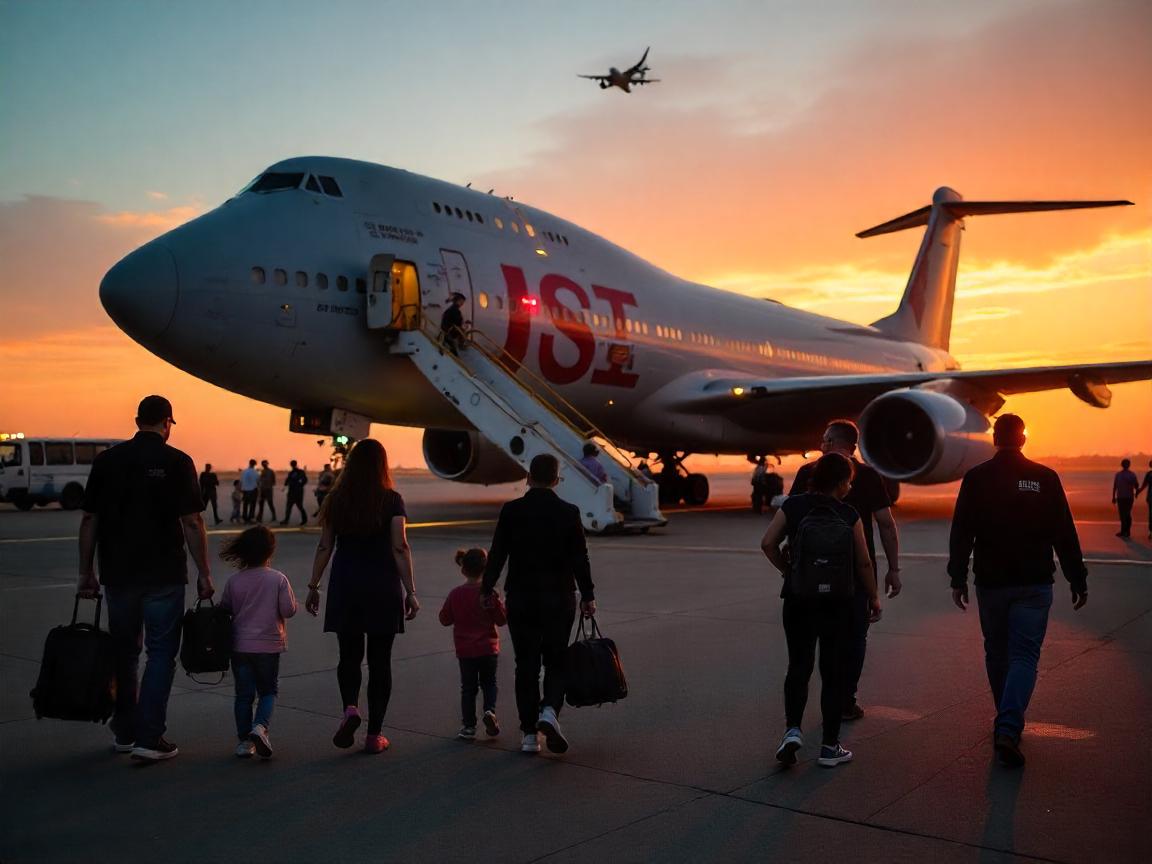US Initiates Emergency Evacuation Flights from Israel Due to Heightened Conflict

A rapidly escalating conflict in the Middle East, ignited by the United States launching emergency departure flights from Israel and striking nuclear sites in Iran, has plunged the world into a global crisis. What began as a regional skirmish has now exploded, with the conflict with Iran intensifying and American citizens scrambling to escape the increasingly hostile skies over the Middle East. The U.S. strikes on critical Iranian nuclear facilities—Fordow, Natanz, and Isfahan—mark a shocking and forceful escalation, threatening to redraw international travel maps overnight as fear and uncertainty grip travelers worldwide.
On Saturday, the U.S. military executed precision strikes against Iran’s most critical nuclear infrastructure using GBU-57 bunker-busting bombs. President Trump hailed these actions as a “spectacular military success,” while Israeli leaders termed them a “game-changer.” This direct targeting of Iran’s nuclear program has pushed the already unstable Middle East deeper into crisis, generating far-reaching implications for the global travel industry.
With Iran vowing retaliation and threatening U.S. military bases across the region (including in Qatar, Bahrain, Kuwait, and the UAE), the fallout extends beyond the battlefield. Airports, airlines, and tourism boards are scrambling to respond to rapidly changing safety risks. Airspace over Iran, Iraq, Syria, and Israel is now closed or heavily restricted, leading to longer flights, rerouted paths, and a higher probability of sudden cancellations. Travelers stranded in Israel, including thousands of Americans, are relying on emergency departure flights or seeking evacuation through land borders into Jordan, with nearby Mediterranean ports like Cyprus preparing to receive displaced individuals.
The economic ramifications are also severe. The Strait of Hormuz, a vital artery for global oil shipping, is under renewed threat, with Iran hinting at disrupting international shipping traffic. Such a disruption could cause disastrous economic consequences, spiking fuel prices and directly affecting airfares and cargo rates. Cruise lines operating in or near the Gulf have already begun diverting or suspending regional itineraries, with passenger safety and maritime insurance premiums becoming paramount concerns.
Global civil aviation is on high alert, with airlines reviewing flight paths over the Gulf and adjacent regions. Routes from Europe to South and Southeast Asia are being forced through narrow corridors over Turkey and Egypt, leading to crowded skies, increased fuel costs, extended flight times, and strained air traffic control systems. Both the European Union Aviation Safety Agency (EASA) and the FAA have advised extreme caution or total avoidance of the airspace surrounding Iran and Israel. Even countries not directly involved in the conflict, such as India, Pakistan, and Oman, are experiencing ripple effects as rerouted air traffic passes overhead, impacting scheduling and operations.
The United States has initiated its first wave of assisted departure flights out of Israel, signaling a dramatic escalation in global travel disruption. On Saturday, two U.S. government-coordinated flights transported 70 American citizens, lawful permanent residents, and their immediate family members from Tel Aviv’s Ben Gurion Airport to Athens. These flights provide a crucial, albeit limited, escape route for Americans unable to leave via commercial means. Eligible travelers must submit a crisis intake form through the State Department for placement, with priority given to U.S. citizens and their families. Thousands remain stranded, awaiting assistance or attempting to flee through land routes to Jordan, Cyprus, or Greece.
Although Ben Gurion Airport remains technically open under military control, most commercial activity has ceased, with major airlines canceling flights through June 30. Terminals, once bustling, are now quiet zones filled with uncertainty. Travelers still in Israel face immense challenges, including scarce flight availability, skyrocketing costs, and constantly changing route options, further complicated by additional airspace closures across the Middle East.
This evacuation effort highlights the broader disruption impacting long-haul travel across Asia, Europe, and the Middle East. Airlines are burning more fuel and straining crew schedules due to rerouted flights, leading to mounting delays, climbing costs, and growing passenger frustration. Destinations as far as India, Thailand, and Australia are experiencing longer flight times. Tour operators are reporting cancellations and refund requests from nervous travelers, and travel insurance claims are rising as routes become unsafe or impossible.
The U.S. State Department has issued its highest-level advisory, Level 4: Do Not Travel, for Israel, Iran, and parts of the West Bank, emphasizing the extreme risk posed by military activity and potential terrorist attacks. American citizens in affected areas are urged to leave immediately via commercial or government-assisted flights. The Smart Traveler Enrollment Program (STEP) is the primary tool for locating and contacting citizens abroad, and all travelers in the region are advised to enroll. For the travel and tourism industry, this is a moment of reckoning. Airlines must balance safety and service, tour operators are reworking itineraries daily, and hotels in nearby regions like Jordan, Turkey, and Cyprus are preparing for an influx of displaced travelers. Insurance companies are reassessing war-risk clauses, and governments are coordinating emergency visas and temporary accommodations. This logistical nightmare, unfolding in real-time, threatens the peak summer travel season and could inflict lasting damage on the global aviation and tourism economy.
Travelers in Israel or the West Bank are advised to leave immediately by any available route. Those planning travel to the Middle East or nearby regions should check current advisories and airline notices. If travel has already been booked, contact the airline or tour provider to discuss options. For safety concerns, enroll in STEP and monitor U.S. State Department updates. The launch of U.S.-assisted departure flights from Israel serves as a stark wake-up call; the travel industry is now operating under wartime conditions, with passengers caught in the middle. As airlines reroute, airports shift into emergency mode, and embassies work overtime, travelers must adapt quickly. The world has changed overnight, and global tourism faces an unprecedented test.










